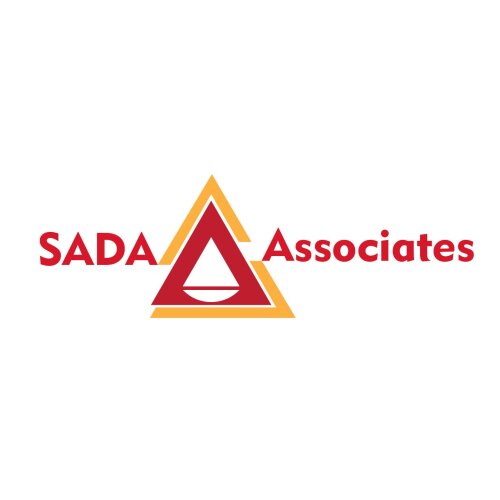Best Private Equity Lawyers in Kathmandu
Share your needs with us, get contacted by law firms.
Free. Takes 2 min.
List of the best lawyers in Kathmandu, Nepal
About Private Equity Law in Kathmandu, Nepal
Private Equity (PE) is a growing area of investment law and business development in Kathmandu, Nepal. It involves the investment of capital into privately held companies or start-ups that are not listed on public stock exchanges. Investors provide funds in exchange for equity ownership and often take an active role in managing and growing these businesses. With the expansion of Nepal’s economy and increasing interest from both local and international investors, private equity plays a vital role in funding innovation and market expansion. However, the legal landscape surrounding private equity in Kathmandu is complex, involving numerous regulations, compliance requirements, and local nuances unique to Nepal’s financial and legal systems.
Why You May Need a Lawyer
Navigating private equity deals in Kathmandu can be challenging due to regulatory complexity and evolving commercial practices. Common situations that may require legal assistance include:
- Structuring investment agreements between PE investors and target companies
- Regulatory compliance and obtaining necessary government approvals
- Conducting due diligence to assess risks before investing
- Negotiating terms such as voting rights, exit strategies, and management involvement
- Handling disputes between investors and business owners
- Adhering to cross-border investment regulations for foreign investors
- Managing intellectual property and contractual obligations
- Ensuring compliance with tax and exchange control regulations
A qualified private equity lawyer in Kathmandu can help protect your interests, ensure legal and regulatory compliance, and structure transactions effectively.
Local Laws Overview
Private equity in Kathmandu is primarily governed by Nepali corporate and investment laws. Key aspects include:
- Company Act, 2063 (2006): Governs the formation, management, and dissolution of companies, including rules regarding share transfers and shareholder rights.
- Securities Act, 2063 (2007): Regulates issuance and trading of securities, including private placements and reporting obligations.
- Foreign Investment and Technology Transfer Act (FITTA): Guides foreign investments, including approval procedures, permissible sectors, and repatriation of profits.
- Investment Board Act: Establishes the Investment Board of Nepal, which facilitates large-scale and strategic investments.
- Tax Laws: Mandate tax compliance on capital gains, dividends, and repatriation of returns for both investors and businesses.
- Exchange Controls: Regulations on currency inflows and outflows are strictly regulated by Nepal Rastra Bank.
- Contract Law: Ensures enforceability and legality of investment agreements.
Proper documentation, due diligence, and compliance with both local and sector-specific rules are essential for any successful private equity transaction in Kathmandu.
Frequently Asked Questions
What is private equity in the context of Kathmandu, Nepal?
Private equity refers to direct investment into private companies that are not listed on a public stock exchange. In Kathmandu, PE involves both local and foreign investors, targeted at start-ups, established businesses, or sectors looking for growth capital.
Can foreign investors participate in private equity in Nepal?
Yes, foreign investors can participate, but they must adhere to the Foreign Investment and Technology Transfer Act (FITTA) and seek approvals from relevant authorities, including the Department of Industry and Nepal Rastra Bank.
What approvals are needed for private equity investments?
Depending on the size and nature of the investment, approvals may be required from the Department of Industry, Investment Board Nepal, and potentially other sector-specific regulators.
Are there sectors that restrict or prohibit private equity investment?
Yes, certain sectors are restricted or closed to foreign and private equity investment in Nepal. This includes areas like defense, security, and specific natural resources. It is important to consult the latest government notifications or legal counsel.
What are common structures for private equity investments?
Investments are typically structured as share acquisitions, convertible instruments, or joint ventures, depending on the investor's objectives and regulatory response.
How is due diligence conducted for private equity transactions?
Legal, financial, and commercial due diligence is undertaken to assess any risks involved, focusing on company background, regulatory compliance, contractual obligations, and any outstanding liabilities or disputes.
What tax considerations apply to private equity investors?
Investors need to consider capital gains tax, dividend distribution tax, and taxes on repatriated funds. Tax rates and exemptions may differ for different classes of investors and sectors.
How can an investor exit a private equity investment in Nepal?
Common exit strategies include share buyback agreements, trade sales, secondary sales to other investors, and, less commonly, public offerings or listings on the Nepal Stock Exchange if eligible.
What rights do minority investors have in Nepalese private equity transactions?
Minority investor rights can be enforced through shareholder agreements, Board representation, and contractual protections. Nepalese law provides some protection under the Companies Act, but robust documentation is advised.
What are the most significant challenges facing private equity in Kathmandu?
Key challenges include regulatory uncertainty, limited exit options, restrictions on foreign investment, currency controls, and evolving market practices. Access to experienced legal and financial professionals is essential to overcome these challenges.
Additional Resources
Individuals and businesses seeking more information or assistance related to private equity in Kathmandu, Nepal may contact or consult:
- Nepal Rastra Bank (NRB) - For exchange control and remittance regulations
- Department of Industry - For foreign investment registration and sector approvals
- Investment Board Nepal (IBN) - For large-scale and strategic investment facilitation
- Office of Company Registrar - For company formation and compliance
- Confederation of Nepalese Industries (CNI) - For business networking and guidance
- Professional law firms experienced in private equity transactions
- Chartered accountancy firms specializing in transaction advisory and tax planning
Next Steps
If you are considering a private equity investment or are involved in such a transaction in Kathmandu, Nepal, consider the following steps:
- Clearly identify your investment goals, sector, and potential partners
- Consult with a licensed lawyer experienced in private equity and foreign investment laws in Nepal
- Undertake thorough financial, legal, and commercial due diligence before making any commitments
- Secure all necessary government approvals and be prepared to comply with reporting obligations
- Ensure that detailed investment agreements are in place, safeguarding your rights and clearly defining the terms
- Engage tax and accounting professionals to structure the investment for maximum efficiency
- Monitor your investment and remain updated on any changes in relevant regulations
Professional legal advice is indispensable for anyone dealing with private equity in Kathmandu. Engaging the right experts early in the process will help protect your investment and facilitate successful outcomes.
Lawzana helps you find the best lawyers and law firms in Kathmandu through a curated and pre-screened list of qualified legal professionals. Our platform offers rankings and detailed profiles of attorneys and law firms, allowing you to compare based on practice areas, including Private Equity, experience, and client feedback.
Each profile includes a description of the firm's areas of practice, client reviews, team members and partners, year of establishment, spoken languages, office locations, contact information, social media presence, and any published articles or resources. Most firms on our platform speak English and are experienced in both local and international legal matters.
Get a quote from top-rated law firms in Kathmandu, Nepal — quickly, securely, and without unnecessary hassle.
Disclaimer:
The information provided on this page is for general informational purposes only and does not constitute legal advice. While we strive to ensure the accuracy and relevance of the content, legal information may change over time, and interpretations of the law can vary. You should always consult with a qualified legal professional for advice specific to your situation.
We disclaim all liability for actions taken or not taken based on the content of this page. If you believe any information is incorrect or outdated, please contact us, and we will review and update it where appropriate.

















